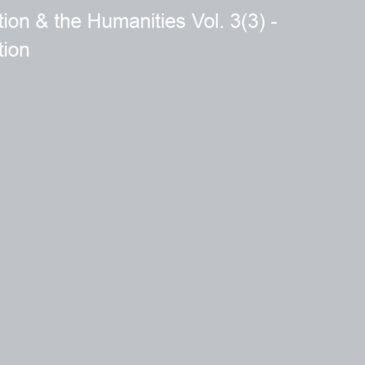Anyone can go online and access the stock market – where people purchase stocks, bonds, or other securities in an attempt to gain a financial return. The types of online investments that people can make have expanded. For example, the Hollywood Stock Exchange allows users to invest fake money on the likelihood of certain actors winning an Oscar. The Foresight Exchange allows users to invest real money on questions such as whether the US will invade Iraq before 2009. A share sells for $35, and costs $36 to buy, showing investors are not moving strongly in either direction in light of recent events (The Foresight Exchange Project, 2007). This week’s Addictions and Humanities will discuss the growing diversity of investment opportunities, taking a special look at the dynamics of investment opportunities in political elections.
Allowing investment opportunities in the fields of art, current events, and politics blurs the lines between “investing” and “gambling,” extends opportunities to gamble, and introduces more people to various fields because of their economic lure rather than because of genuine interest. Although many of these websites focus on frivolous topics, others demand closer attention. The Iowa Electronic Markets (IEM), owned by the University of Iowa, is perhaps the best known example of a futures investing website. The IEM has allowed users to invest money online in the expected outcomes of presidential races since 1988. The IEM has evidenced amazingly accurate predictions of election outcomes. The IEM’s predictions of the four presidential elections from 1988-2000 and the actual voting share of these elections differed by 1.37% (Berg, Forsythe, Nelson, & Rietz, 2000; Surowiecki, 2003). One reason the investment numbers are accurate is because investments are made according to people’s predictions of who will win an election, rather than whom they would prefer to win. Because predictions from the IEM and other futures investment sites are so accurate, companies sometimes call them “prediction markets” and use them as “decision support systems”(Berg & Rietz, 2003). However, this unanticipated usefulness of online investing could come at a price. Such political investing might create a fundamental change in the motivation for becoming involved in politics: a change from personal ideals to economics.
The Internet provides ample opportunity for many people to access futures investment sites from any location at any time of day. Interestingly, a surprisingly high rate of investing or gambling on political election outcomes predates the Internet. In 1979, the first study to examine national prevalence rates of gambling and gambling-related problems reported 9.1% of Americans had wagered money on presidential elections during their lifetime (Kallick, Suits, Dielman, & Hybels, 1979). The current estimate is not known, but the opportunity to wager on political races is much more available than ever before because of online investing sites. This could mean that more people in the last 28 years are following politics because of the chance of economic gain.
Such Internet-based activity could normalize “betting” and “investing” in politics. Whether or not this normalization directly will influence the electoral process is unclear. Arizona’s 2006 Proposition 200 suggested entering all people in a lottery to win $1 million dollars (in unclaimed state lottery money) in return for their vote in state and national elections. Lawmakers intended the bill to increase voter turnout, which was 2.8% lower than the national average of 60.9% in 2004. However, voters ultimately rejected this bill because of concerns about a similar change in motivation that online investing in politics might create. That is, those people who are motivated to vote by the lottery, rather than by their political ideals, might not have taken enough time to learn or care enough about the issues before voting. (Arizona Secretary of State, 2006).
Voting is presented as an American tradition, privilege, and right. It is unclear whether “investing” in politics can raise longstanding low voter turnout rates. Also, unclear is whether increases in wagering on politics, online or otherwise, violate the fundamental principles behind voting. Steve Twist, Chairman of the Board of Directors for the Arizona Chamber of Commerce wrote on the voting ballot that adding gambling to voting “belittle[s] it by turning it into a game” (Arizona Secretary of State, 2006). Arizona voters – individuals whose vote represented genuine interest in the issue – agreed. Proposition 200 did not pass.
What do you think? Comments can be addressed to Leslie Bosworth.
References
Arizona Secretary of the State (2006). 2006 Ballot Propositions and Judicial Performance Review. Retrieved March 28, 2007, from http://www.azsos.gov/election/2006/Info/PubPamphlet/english/Prop200.htm
Berg, J., Forsythe, R., Nelson, F., & Rietz, T. (2000). Results from a dozen years of election futures markets research. Iowa City: University of Iowa, College of Business Administration.
Berg, J., & Rietz, T. (2003). Prediction markets as decision support systems. Information Systems Frontiers, 5(1), 79
93.
Kallick, M., Suits, D., Dielman, T., & Hybels, J. (1979). A survey of American gambling attitudes and behavior (Research report series, Survey Research Center, Institute for Social Research). Ann Arbor, MI: University of Michigan Press.
Surowiecki, J. (March 24, 2003). Decisions, Decisions. The New Yorker.
The Foresight Exchange Project. (2007). The Foresight Exchange Prediction Market. Retrieved March 28, 2007, 2007, from http://www.ideosphere.com/




